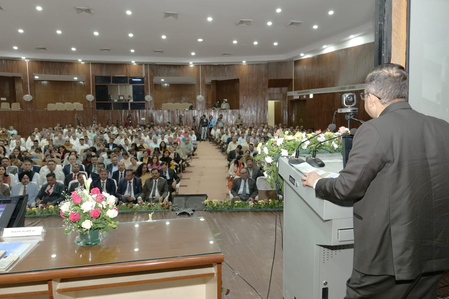
New Delhi, Nov 22 (IANS) The Union government’s announcement for immediate implementation of the four new progressive Labour Codes has consolidated 29 archaic, colonial-era laws into a simplified, modern, and future-ready framework that prioritises worker welfare while boosting manufacturing and service-sector growth, India Cellular and Electronics Association (ICEA) said on Saturday.
The Association said that this long-awaited transformation will enhance ease of doing business, ensure greater social security, and propel India towards the vision of becoming Viksit Bharat by 2047.
In addition, the reforms will create greater predictability regarding policy provisions for labourers and businesses under the framework.
These Labour Codes have a vision that will ensure a workforce that is secure, empowered, and highly productive—essential for India’s ambition to emerge as a global manufacturing and innovation leader, the Association noted.
These reforms offer a balance between robust worker welfare and sustainable industry growth, bringing India’s labour ecosystem in line with international standards.
“India’s new Labour Codes are a major step towards a modern, efficient, and globally aligned labour ecosystem. For the IT and electronics sectors, these reforms bring about stronger social security, operational clarity, and a more stable workforce environment—factors that will enhance productivity and enable long-term competitiveness,” Pankaj Mohindroo, Chairman, ICEA, stated.
Greater participation of women in the workforce, flexibility in working hours, worker benefits and protections, and inclusion of gig and platform workers in labour laws are the salient features of the Labour reforms.
The codes encourage employment of women across establishments, across shifts, with mandated equal pay for equal work, safety, and maternity benefit provisions. Facility for women to work night shifts in all establishments will lead to self-reliance for the Indian women workforce.
The new rules cap maximum working hours at 8 hours per day and 48 hours per week, with overtime payable at twice the normal rate for hours beyond regular working time and it also mandatory issuance of appointment letters, minimum wages, timely payment of wages, social security, health care benefits, compliance with international occupational safety standards, and welfare facilities to enhance productivity and workforce wellbeing.
–IANS
aps/uk




